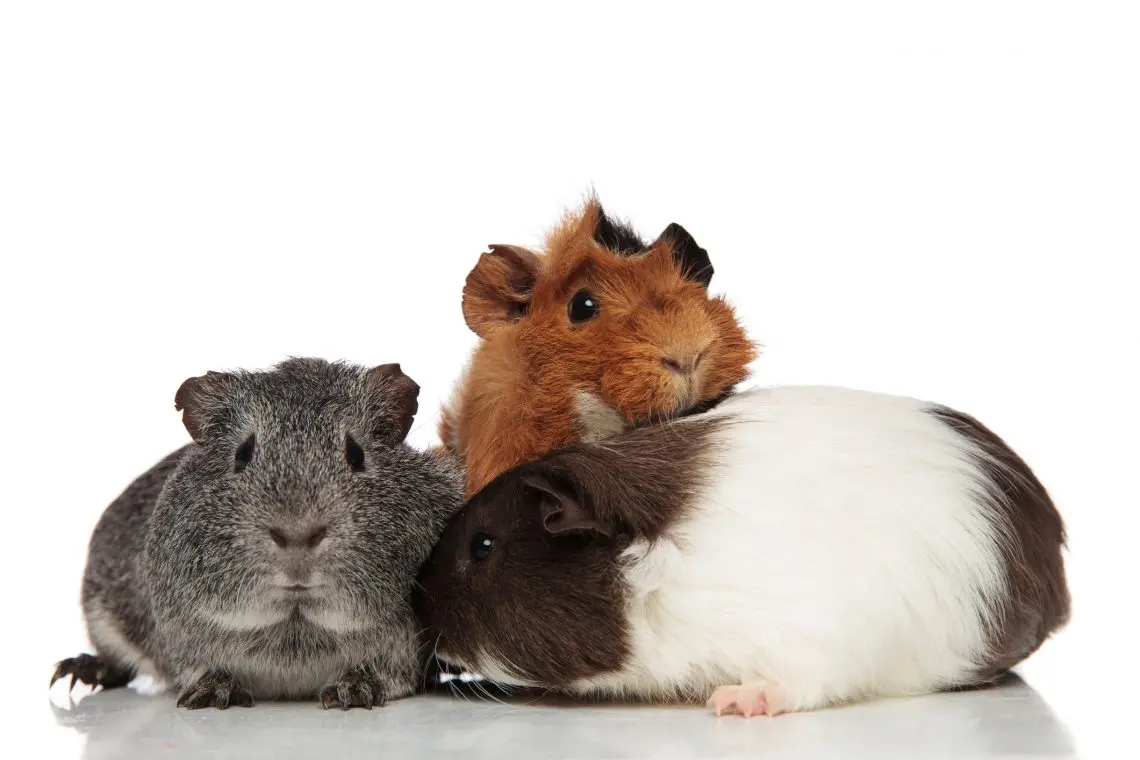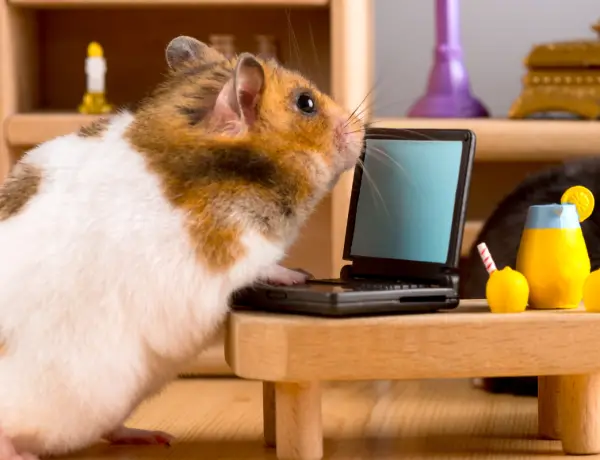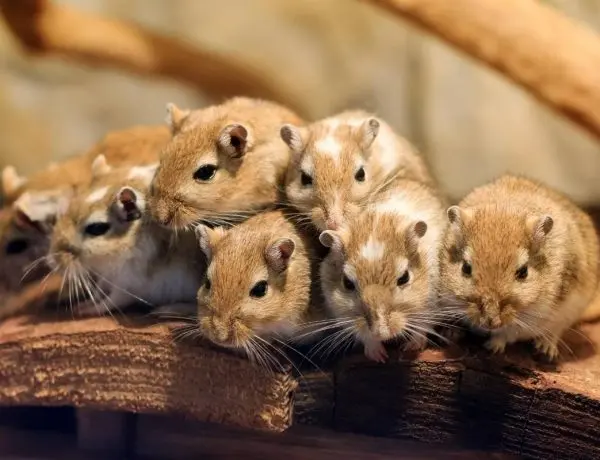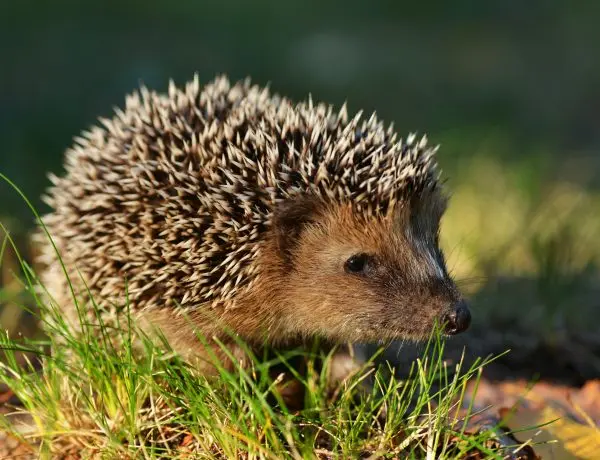While there are some similarities between animals people keep as pets, there can also be many differences. It is not uncommon for new guinea pig owners to make quite a few mistakes that could lead to unhappy or unhealthy guinea pigs. Here are five of the most common mistakes that new, and even some seasoned, guinea pig owners make.
Table of Contents
#1 Getting a Single Guinea Pig instead of a Pair
One of the most common mistakes new guinea pig owners make is when they first pick one out. They incorrectly assume that they are much like hamsters or other small mammals that do well or even thrive while alone. Guinea pigs, however, are incredibly social creatures. They flourish with companionship and are typically miserable without it. Every guinea pig needs a buddy and needs to feel like a member of a family or pack.
When getting multiple guinea pigs, it is typically recommended to keep males in a pair and females in a group of three. Male guineas do well in pairs well, although an occasional argument may happen. When buying two males, it’s best to choose them from the same enclosure as they were at the pet store or at the breeders to make sure they are compatible.
If they were getting along well in the store or at the breeder, there is a really good chance they will continue to get along after you bring them home.
Females tend to do better while in a group of three. Females are generally easy-going, and they quickly work things out between themselves. Having a single guinea pig will more than likely lead to severe depression, boredom, and anxiety for your furry friend. Lonely guineas do not do well and will typically continue to get more depressed no matter how much human attention they get, resulting in loss of appetite or even more severe health issues.
#2 The Size of Your Guinea Pigs Cage
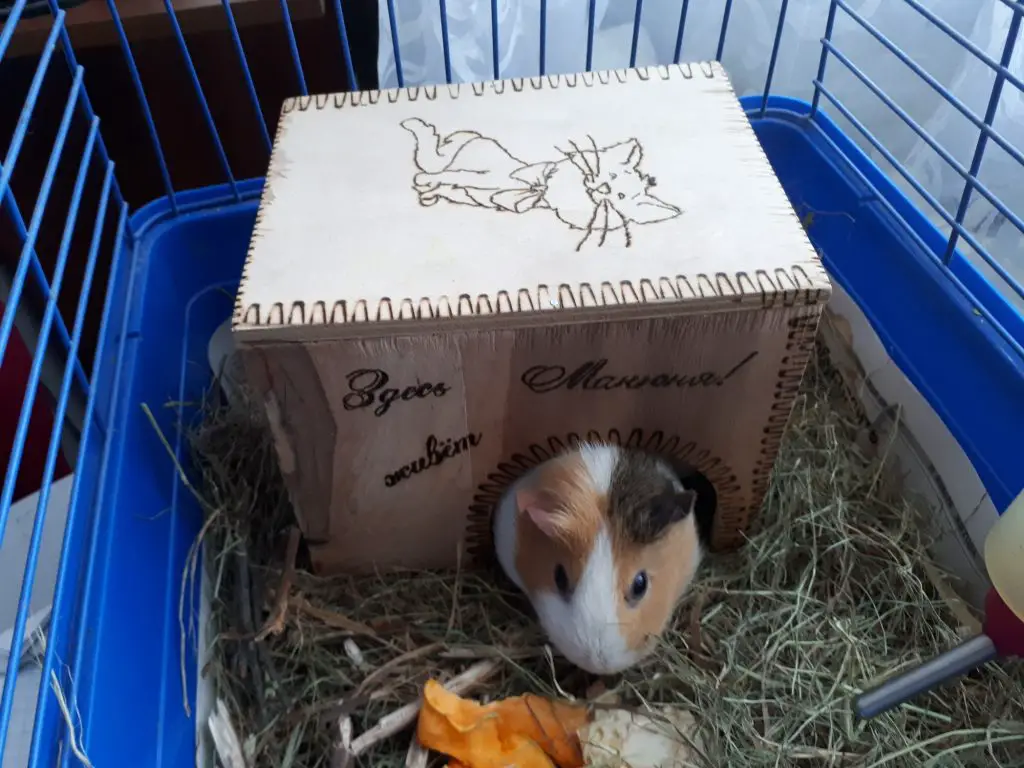
You probably shouldn’t purchase the cage for your guinea pig from the pet store. The majority of pet stores that sell guinea pigs will have a cage they recommend that you purchase along with them. Typically, it will be around a 2’x2′ or 2’x3′ enclosure. While that size cage may work well for some situations, such as transporting, purchasing one that size for your guinea to live in permanently is a huge mistake! I get the thoughts behind it; you have a new friend who is small and cute, you want their house to be small and cute as well. As adorable or as convenient as it may be having a cage you can fit on your children’s desk, these enclosures are way too small for anything but temporary use!
Keep in mind that guinea pigs are larger than other small mammals people may keep as pets. They need a minimum of 6-8 square feet of flat roaming space. They will need room that you can place domes or “small houses” for guineas to hide in and nap, they need a potty area away from their sleeping and eating area, and an area for running and getting exercise. Once you have more than one guinea, as you should, it becomes even more imperative to have the extra room for them to stretch their legs.
To put it in perspective, using dogs as an example, most dog owners will have a crate to transport their pup around, for timeout, etc. While it is safer for your dog to ride in the crate while in a vehicle, and it is good to have available for them in your house, a dog cannot live its entire life in a crate that is barely bigger than them. The same is true for guinea pigs.
So what do you do for their living space? Building a custom pen is your best bet, as you can make sure they get the amount of space needed, as well as the ability to fit the enclosure in the area you have available. While that would not be an option for everyone, due to price, ability, or time, there are some other options available to you. Many experienced guinea pig owners recommend that if you cannot build a custom area for your guinea, using metal storage cubes or similar materials that snap together and lining them with corrugated plastic works very well. There isn’t any need to purchase expensive solutions, as there are cheaper storage cubes found easily at most big box stores or online, and they work just as well!
#3 Improperly Feeding Your Guinea Pig
Guinea pigs should always have a steady diet of pellets and timothy hay. Guineas typically do not overeat with their normal food. So feed them plenty and often. Make sure to put the hay you feed them up off the ground. If you place the hay on the floor of their cage, they may be tempted to use it for a potty place or bedding.
The snack shack is the best container for hay, and it helps to stimulate guineas mentally and physically while keeping their area clean. Some people consider it to be the most essential item in the enclosure next to the pet water bottle and pellet bowl.
Another common mistake with their food that people make is feeding your guinea pellets made for adolescents (pups) vs. ones made for adults. When guineas are young and still growing, they require more calcium in their diet. Alfalfa-based pellets are the optimal choice until they reach adulthood. When they become fully grown, they should eat adult pellets, which are timothy hay-based. Feeding adults too much calcium can lead to the growth of a calcium deposit in their urethra. Besides being extremely uncomfortable and possibly life-threatening for your little friend, it would require an expensive visit to your vet to get taken care of.
Always go with veggies and sparingly on fruits. Like humans, guineas do not produce their own vitamin C and will need to get it from outside sources. It is recommended to give your guineas some vitamin C every day. However, I would not recommend putting vitamin C in their water as a means to provide them with their daily doses. Doing so will dilute the vitamin over time, and there is no way to know if your guinea got the amount they needed. Use the eyedropper provided in the liquid vitamin C bottle. LA Guinea Rescue recommends 50mg/1ml or one full cc of Childlife liquid vitamin C brand. Most guineas like the taste, which in turn will teach them to take any liquid medications if needed.
Safe Veggies:
- Cilantro and parsley
- Romaine/green leaf/red leaf lettuce
- Kale
- Bell pepper
- Cucumber
- Fresh grass with no fertilizer or chemicals used on it
Safe Snacks:
- Tomato
- Basil
- Celery
- Dandelion leaves
- Chard or greens like it
Safe Sweet Treats:
- Carrots
- Grapes
- Apples
- Banana
- Watermelon
- Cantaloupe
- Berries
- Corn on the husk (organic only)
DO NOT FEED THESE:
- Broccoli and cabbage, bok choy (will cause bloating)
- Iceberg lettuce (too much water and zero nutrition)
- Spinach (too much calcium)
#4 Handling and Bathing Your Guinea
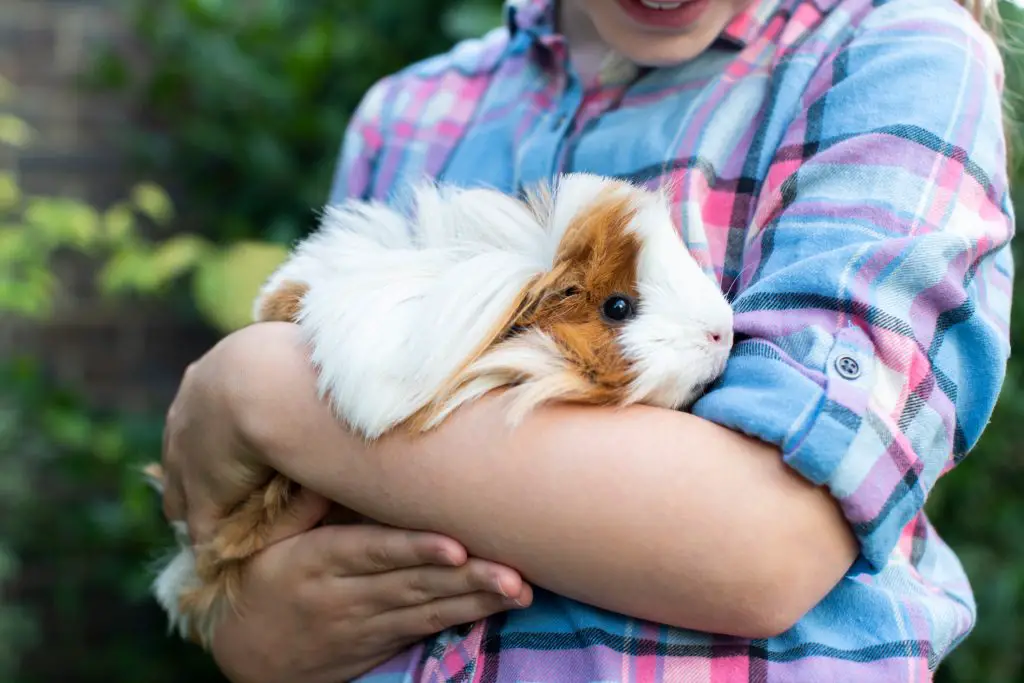
Guineas are prey animals, and chasing them around the cage with your big hands will scare and stress them out. Swoop them up quickly and with confidence supporting their feet with your hands, and promptly bring them close to your body. They do like being held, but it will take some time for them to get used to you and not trigger their flight instincts. Know that once you are holding your guinea, two common occurrences will happen, pee and poop. It is inevitable. To avoid getting it on your hands or clothes, have a small blanket (like a baby blanket) or towel handy to set them on in your hands after you pick them up.
As far as bathing your guinea, it is typically recommended to do so only a few times per year. Unlike some other small mammals, guineas rarely stink. If your pet is not dirty, there is no reason to bathe it.
When it’s time for a bath, use a shallow plastic container with a flat bottom in a sink. Ensure your guinea’s legs reach the bottom at all times, to help make them feel safer. If your water temperature is too hot or too cold, it will cause your guinea will squirm quite a bit – so adjust it accordingly. When shampooing them, be gentle with them. Take care not to get the soap in or around their eyes, nose, mouth, or ears. After you shampoo them, you should rinse them twice to ensure you got all the soap out. Otherwise, it may irritate their skin. You can then use a conditioner (preferably not a strongly scented kind) and then rinse them out once after that. Place your guinea in a clean, dry towel with a snack to get them to stay put. Only put them back in their enclosure after they are completely dry! Regular human shampoo and conditioner will work just fine, or you can purchase pet shampoo if you would rather. Just get unscented or a weak scented kind when you choose. Head and Shoulders shampoo works great, or if you are having issues with ringworms with your guinea, antifungal shampoo is what I would recommend.
#5 Health and Illness in Guinea Pigs
Once again, guinea pigs are prey animals. This means they will instinctually hide their illnesses or injuries because predators look for the weakest ones to pick off by nature. It’s essential to keep a close eye on your guinea and get to know how they act. Doing so, small changes in behavior will be more noticeable to you earlier on. If you don’t, by the time you notice obvious signs of sickness like coughing or acting ill and lethargic, it may be too late. To avoid such unpleasant events, you must do routine health checks.
What should you check for? Sudden behavior changes, lethargy, not eating as much or at all, crusty nose and eyes, weepy eyes (looks like there are tears), labored breathing or crinkling sounds when breathing, lumps, bites, scratches, broken or overgrown teeth, and nails. Please do not ignore your guineas; pick them up every day, spend some time with them, do a quick health check, and keep the bond growing.
With any animal you decide to bring into your home as a pet, it is always best to do a lot of research and precisely know their needs. Doing so will not only let your new friend be more healthy but can also play a significant role in how happy they are throughout their lives.

